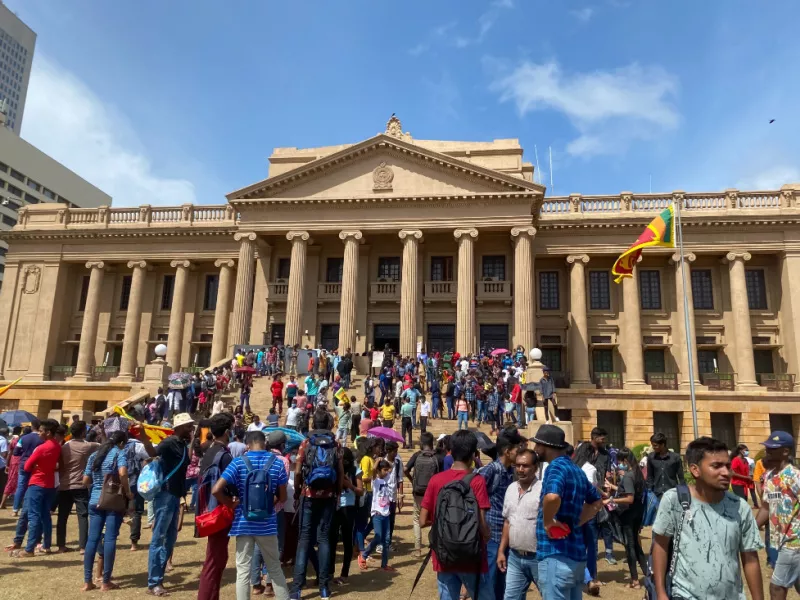

maresiliencycenter.org – Sri Lanka’s economic crisis, which reached its peak in 2022, has been a stark reminder of the vulnerabilities that can arise in a country’s economic system. The crisis was marked by severe currency depreciation, inflation, and a shortage of essential goods, leading to widespread protests and political instability. This article aims to explore the key lessons that can be learned from Sri Lanka’s economic crisis, providing insights that could be valuable for other nations facing similar challenges.
The economic crisis in Sri Lanka was precipitated by a combination of factors, including mismanagement of foreign exchange reserves, a significant reduction in tourism revenue due to the COVID-19 pandemic, and a decision to ban chemical fertilizers, which led to a decline in agricultural productivity. These factors, compounded by a lack of effective policy responses, resulted in a severe economic downturn.
One of the primary lessons from Sri Lanka’s crisis is the importance of economic diversification. Relying heavily on a few sectors, such as tourism and agriculture, made the economy particularly vulnerable to external shocks. Diversifying the economy can help mitigate the impact of such shocks and provide a more stable foundation for growth.
The crisis highlighted the need for robust fiscal management. Sri Lanka’s government faced significant challenges in managing its budget, leading to a depletion of foreign exchange reserves. Implementing sound fiscal policies, including prudent budgeting and effective tax collection, can help prevent such fiscal crises.
Sri Lanka’s experience underscores the critical role of international support in managing economic crises. The country received assistance from the International Monetary Fund (IMF) and other international organizations, which was crucial in stabilizing the economy. Building strong relationships with international financial institutions can provide a safety net during times of economic distress.
The crisis also revealed the importance of transparent and inclusive governance. The lack of clear communication and inclusive decision-making processes exacerbated public discontent and protests. Ensuring that governance is transparent and inclusive can help build public trust and support during economic hardships.
The decision to ban chemical fertilizers, intended to promote organic farming, had unintended negative consequences on agricultural productivity. This highlights the need for careful consideration of the potential impacts of policy decisions, especially in critical sectors like agriculture.
Sri Lanka’s economic crisis serves as a cautionary tale for other nations. The lessons learned from this crisis emphasize the importance of economic diversification, effective fiscal management, international support, transparent governance, and careful policy decision-making. By heeding these lessons, countries can better prepare for and mitigate the impact of future economic crises.
maresiliencycenter.org - Jakarta, kota metropolitan yang selalu sibuk, menyajikan berbagai pilihan kuliner yang menggugah selera.…
Tulungagung, sebuah kabupaten di Jawa Timur, tengah menjadi sorotan link slot gacor warganet berkat harga…
Flavonoid adalah senyawa bioaktif yang ditemukan secara alami dalam berbagai buah, sayuran, teh, dan cokelat.…
Rica-rica adalah salah satu hidangan khas Manado, Sulawesi Utara, yang terkenal dengan rasa pedas dan…
Pernah nggak sih kamu merasa ngantuk padahal baru aja duduk di meja kerja? Atau malah…
Siapa bilang makan sehat itu harus hambar dan ngebosenin? Banyak orang langsung bayangin sayur rebus…